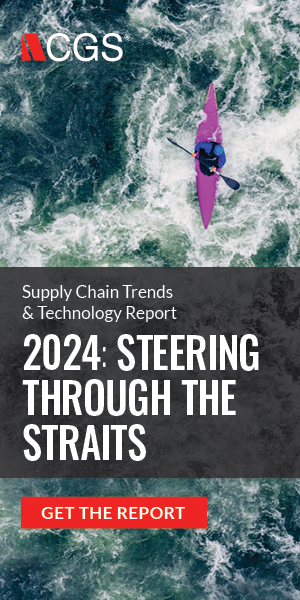Topics
What is Apparel ERP and How to Select the Right ERP Software

Apparel ERP software is a business process management software designed and customized for manufacturers, wholesalers and retailers in the apparel, fashion and consumer lifestyle brands industries. ERP, which stands for Enterprise Resource Planning, is a powerful enterprise tool that allows businesses to manage and automate business or back office functions through integrated applications or modules. Apparel ERP applications can integrate applications or modules related to sourcing, supply chain and logistics, design and product development, manufacturing, electronic data interchange (EDI) and business intelligence (BI), among others. Choosing the right apparel ERP solution for your business can be one of the most important decisions you will make, so you need to have a clear understanding of all the criteria that will influence the decision-making process.
The apparel ERP software that you implement can improve overall operations and efficiencies, freeing up people resources and enabling your business to grow and win new business. Selecting the right apparel ERP solution for your business’ specific needs is absolutely critical. Making the wrong choice can be costly in implementation hours, user adoption hours, business inefficiencies and potentially even replacement costs.
Whether your business has recently grown to the threshold that necessitates choosing and implementing your very first ERP solution, or you have come to recognize that your old legacy ERP system simply cannot meet your needs any longer and you’re ready to upgrade, there are certain selection criteria that you should consider in your decision-making process. To find the right apparel ERP solution for your company, you need to consider all of your present and future needs and goals. In order to get a clear understanding of those needs and goals, consider the following criteria:
Know your business requirements
Apparel ERP software is designed specifically to fit apparel, fashion and consumer lifestyle brands industry needs. Any ERP worth considering can further be configured for your business to meet your unique needs. You may choose to implement certain ERP applications or modules and hold off on others. You may decide to start with a standalone application or module, or you may integrate several depending upon your situation and requirements. So it is important to know exactly what those requirements are.
Organizations generally integrate multiple ERP modules as determined by the unique needs and technical capabilities of each specific business. A module specializes in one business process are and can be integrated with others to create one centralized version of the truth to standardize data and reporting and improve accuracy.
ERP can be used to streamline operations and improve efficiencies in financial data, accounting, inventory, ordering, logistics, production, project planning and even design. ERP can even help improve the customer experience, customer relationship management and BI. Understanding your specific business needs and which ERP modules make sense for your company is the first step.
Consider all users from the beginning
As an enterprise application, ERP software is generally employed by larger organizations, which may have entire dedicated teams or specialists working with the application. In addition to the people who handle configuration, deployment, integration and product upgrades, many end users may touch the software. It would be wise to involve all stakeholders and potential users in the process by creating a project evaluation team with representation from key departments and business functions involved in the selection process as early as possible, even if you are undecided as to which ERP you want to deploy. They may offer valuable insights about enterprise software on the day-to-day operational level that you had not considered. Importantly, their involvement will result in higher levels of buy-in and adoption when you do select your ERP.
Cost vs. investment
While cost is always a consideration, and sometimes may seem like the heaviest factor, it is important to understand that purchasing and implementing an ERP is a strategic business investment. When implemented correctly, there will be long-term benefits and significant ROI.
During the bidding process, bear in mind the fact that lower costs are often correlated to less or poorer ERP software functionality or diminished implementation and support. You usually get what you pay for. With a strategic business investment, cost should never be the deciding factor. Do your due diligence and dive deep into each ERP solution’s modules, integrations and functionalities. A functionally-rich ERP that addresses your unique business needs while giving you the modular flexibility to scale when you are ready will leave your company poised to grow and thrive.
Further flexibility and scalability can be delivered through a hosted, cloud-based ERP, which is increasingly being adopted by mid-sized companies following in the footsteps of larger enterprises. Implementation investments in cloud-based ERP
Scalability
ERP software applications typically consist of individual business process modules that can be integrated. Sometimes certain modules can be implemented as standalone products. You may decide that your business requires only one or two modules at present to improve operations, or you may see value in integrating multiple modules to automate and manage more business processes.
Whether the first approach or the second approach makes the most sense for your company, keep business growth in mind as you select your ERP partner. Many factors drive into an ERP solution’s ability to scale. In addition to being modular, the code base as well as the capabilities of the organization behind your prospective ERP also affect how scalable it will be.
Your ERP Vendor as a True Business Partner
In addition to selecting an ERP provider who will be present post sale, you may benefit from doing a little extra due diligence on the organization itself. What are their values? What is their mission? What do they bring to the table beyond a great ERP solution?
Watch and read case studies, conduct online research and consume as much content as you can to get a complete view of the ERP vendor. If appropriate, talk to the vendor’s existing ERP clients. Some ERP vendors just sell the software. Make sure the vendor will be there for you through the implementation and deployment – and beyond, in case any issues arise. And some ERP vendors have an expertise in your specific industry and can offer more business value than technical ERP knowledge. Look for more than just a vendor – look for a true business partner.
If an ERP solution is the right move for your business, be sure to consider all the deciding factors that are relevant before you select your ERP partner. The ERP methodology continues to gain adoption and popularity as organizations recognize the value of accurate, unified controls and views. ERP also enables businesses to remain competitive in a digital economy - legacy software and spreadsheets simply lack the speed, efficiency and accuracy to keep page. Becoming data-driven is the key to getting and staying ahead of the competition, and this framework should help you decide which ERP solution can help you get there.
Sources:
Beal, Vangie. ERP – enterprise resource planning. Webopedia.

